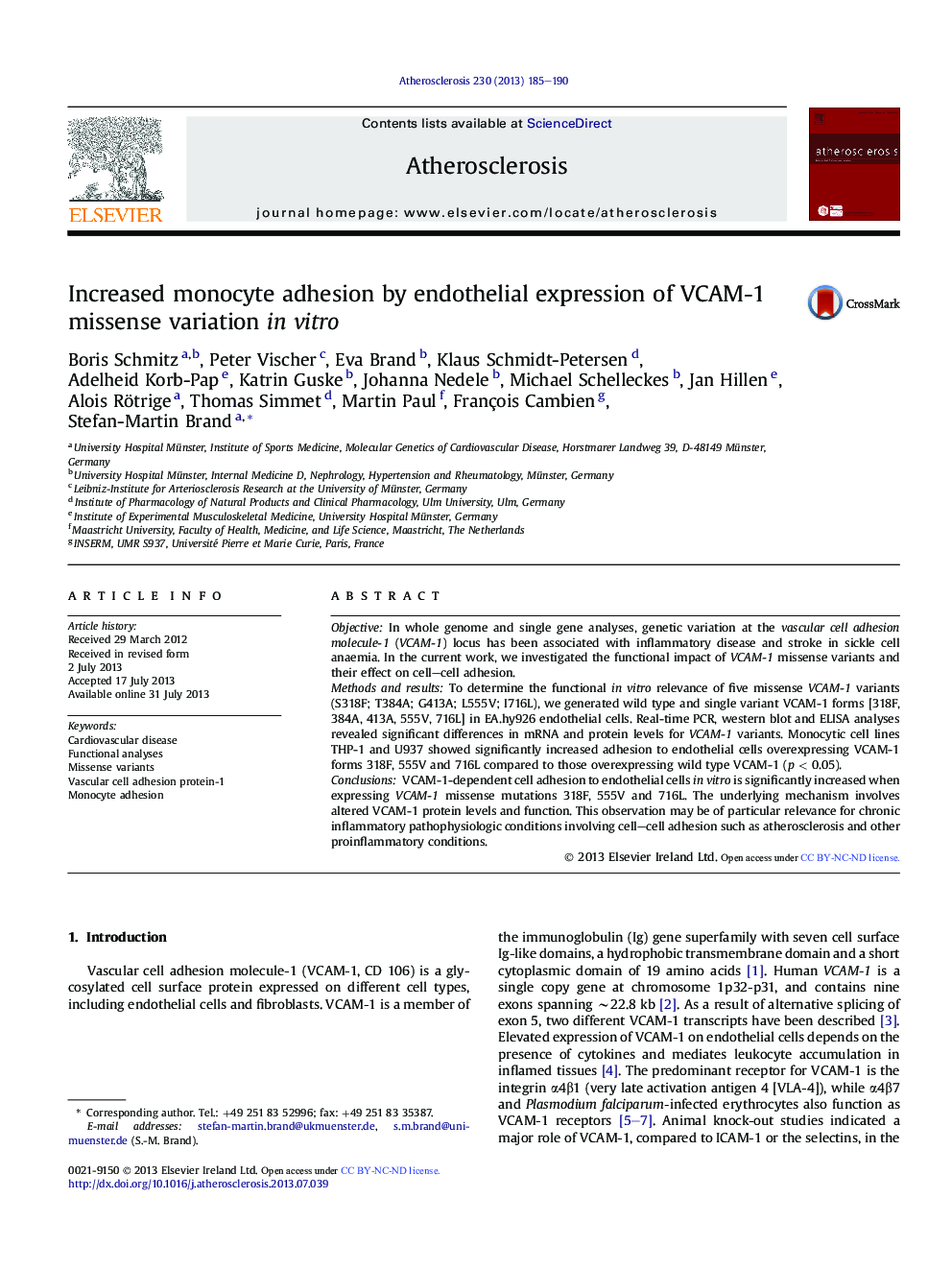| Article ID | Journal | Published Year | Pages | File Type |
|---|---|---|---|---|
| 5947013 | Atherosclerosis | 2013 | 6 Pages |
â¢Variant VCAM-1 forms significantly affect monocyte adherence to endothelial cells.â¢VCAM-1 forms 318F, 555V and 716L increase monocyte adherence.â¢VCAM-1 variants may explain interindividually different atherosclerotic phenotypes.
ObjectiveIn whole genome and single gene analyses, genetic variation at the vascular cell adhesion molecule-1 (VCAM-1) locus has been associated with inflammatory disease and stroke in sickle cell anaemia. In the current work, we investigated the functional impact of VCAM-1 missense variants and their effect on cell-cell adhesion.Methods and resultsTo determine the functional in vitro relevance of five missense VCAM-1 variants (S318F; T384A; G413A; L555V; I716L), we generated wild type and single variant VCAM-1 forms [318F, 384A, 413A, 555V, 716L] in EA.hy926 endothelial cells. Real-time PCR, western blot and ELISA analyses revealed significant differences in mRNA and protein levels for VCAM-1 variants. Monocytic cell lines THP-1 and U937 showed significantly increased adhesion to endothelial cells overexpressing VCAM-1 forms 318F, 555V and 716L compared to those overexpressing wild type VCAM-1 (p < 0.05).ConclusionsVCAM-1-dependent cell adhesion to endothelial cells in vitro is significantly increased when expressing VCAM-1 missense mutations 318F, 555V and 716L. The underlying mechanism involves altered VCAM-1 protein levels and function. This observation may be of particular relevance for chronic inflammatory pathophysiologic conditions involving cell-cell adhesion such as atherosclerosis and other proinflammatory conditions.
